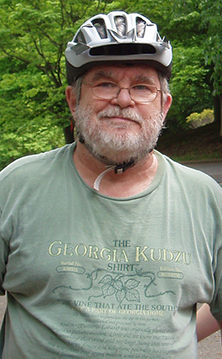 Sean Furniss
Sean Furniss
Sean Furniss began his career with the FWS as a student trainee at Klamath Basin Refuges in June 1967. He was drafted into the Army in July 1968, and in 1969, experienced his first year living in the tropics in the Republic of South Viet Nam. He was assigned to Malheur NWR in August 1970. In 1972 Sean left the FWS to work on his master’s degree at Oregon State University. Upon completion of that degree, he joined the Peace Corps in 1974. Sean was sent to Colombia, South America, as a member of the Smithsonian–Peace Corps environmental program. He worked in the eastern plains of Colombia as a research ornithologist with the International Center for Tropical Agriculture (CIAT). His parasite collection and assorted bird collections were donated to the Smithsonian Natural History Museum and the Field Museum of Natural History in Chicago. In 1976 Sean re-joined the FWS at Imperial NWR in Arizona and in 1978 he became the first refuge manager of Caribbean Islands NWRs, headquartered in Cabo Rojo, Puerto Rico, where he and his family enjoyed nine years in the tropics (A much nicer experience than his year in Viet Nam!). He joined the FWS Headquarters staff in 1987. Between 1987 and his retirement in January 2010, Sean served in various positions, working with the Office of the Vice President, the Office of the Secretary of the Interior, an assortment of interagency programs and committees, the National Academy of Sciences, Transportation Research Board, the Senate Environment and Public Works (EPW) Committee staff, and other groups. He assisted the Office of International Affairs with programs in Mexico, Honduras, Nicaragua, Costa Rica, and Florida. In 1998 Sean was chosen to work with the Federal Lands Highway program and assemble information about refuge roads and transportation needs. Working with the EPW staff the 20-million-dollar Refuge Roads program was added to the transportation bill. The EPW staff and other congressional staff were taken on field trips to review the transportation issues on federal lands. The EPW’s support of Sean’s environmentally responsible dust control project proposals resulted in funding studies to improve dust control on unpaved roads, which was later recognized by the Federal Highway Administration with an Environmental Excellence Award. After retiring Sean has focused his efforts on family history and genealogy projects. He has served as education chair and program chair of the Fairfax Genealogy Society for six years and is currently serving as co-leader of the Family History Writing Special Interest Group. In addition to waterfowl and seabird publications, Sean has had ten genealogy and family history articles published in three journals.